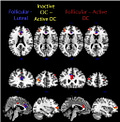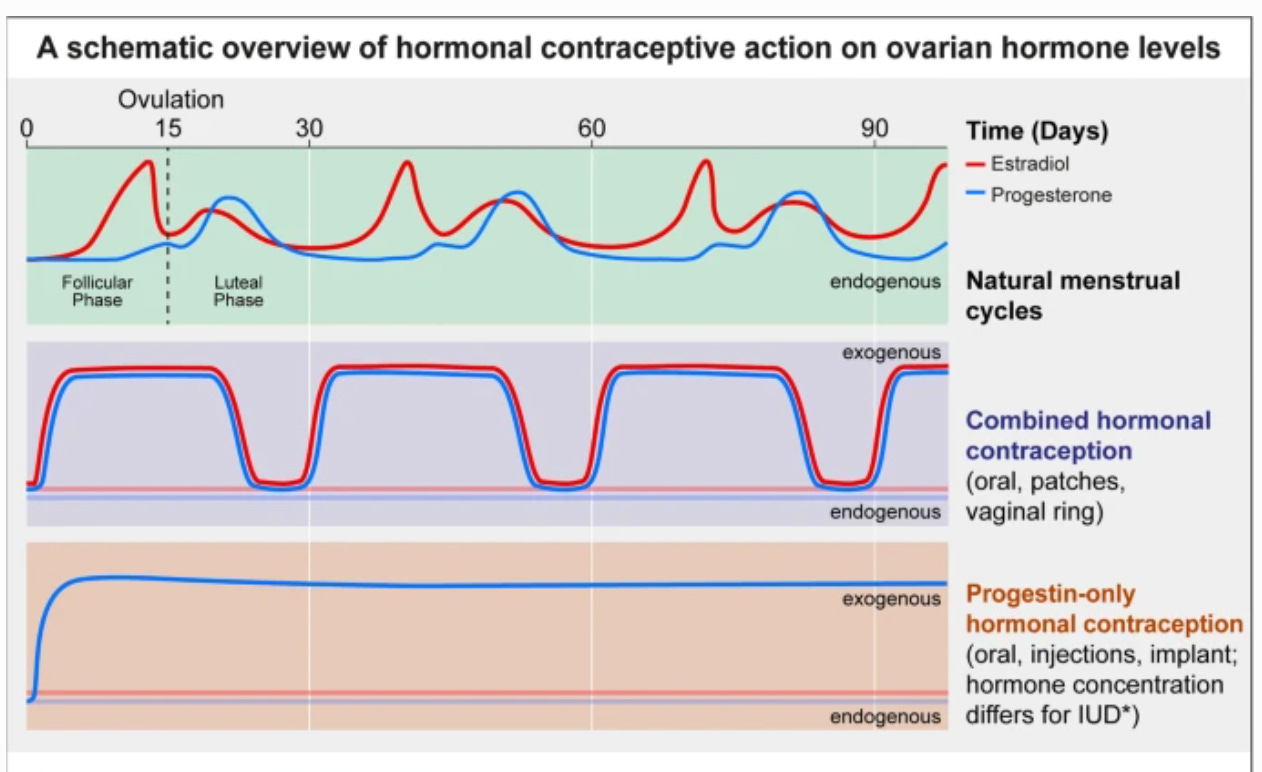Women on the pill are LESS LIKELY to pick up complex emotional expressions
Your Brain on the Pill
If you or your partner can't read your face, pick up on your reactions, or gauge how you are feeling... How can that impact your relationship?
Women on the pill were 10% worse than non-users at recognizing complex emotions and subtle expressions. Frontiers in Neuroscience's study compared the phenomenon.
We've all heard about micro-expressions. There is value in being able to read people's emotions. It can help us navigate our relationships. It is one of the most important non-verbal ways to communicate.
"Oral contraceptives impair the ability to recognize emotional expressions of others. Which could affect the way users initiate and maintain intimate relationships." Dr. Alexander Lischke of the University of Greifswald, Germany (Study senior author)
Women have natural variations of estrogen and progesterone levels. These hormones influence the connections in the brain. So they can influence our behavior.
Dr. Lischke looked into behavior responses, but that doesn't necessarily prove it.
Okay, so here are some studies that looked at brain scans.
To what extent does the pill impact brain activity?
A study looked at neuroimages of women on and off the pill.
Was there a difference? Yes. It alters DMN connectivity. That is the default mode network.
Where?
DMN is a network. The left angular gyrus, the left middle frontal gyrus, and the anterior cingulate cortex (ACC). The scans showed differences between groups.
Normal DMN structures are activated by...
Autobiographical remembering, prospection, and theory-of-mind imagining, tasks that place the self in the past, the future, and in the mind of another person.
What do networks in that part of the brain control?
Important for higher-order cognitive and emotional processing.
- conflict monitoring
- changes of these structures and how they interact (via synthetic hormones) can have important consequences for,
- attention, affect, and/or emotion regulation.
- performance on verbal memory (Mordecai et al., 2008)
- verbal fluency,
- mental rotation tasks differ in women using oral contraceptives (OCs; Griksiene and Ruksenas, 2011)
- pattern of memory retention for recall of an emotional story (Nielsen et al., 2011)
(Blue = natural cycle, red = on the pill, yellow/purple = overlap)
Gosh, can’t pick up cues and that sounds like brain fog... What have other diseases altered DMN structures?
Young and old age, Alzheimer's, major depressive disorder.
People with ADHD showed abnormal ACC and had difficulty with staying on task and emotional processing.
What about the other studies out there?
Reading many studies, I found scientists are precise about their claims. Often studies list others for confirmation bias, even in my own articles. Yet, the closer I looked at the topic, there is a big difference in phrasing.
Emotional Recognition vs. Emotional Response.
Studies agreed hormonal contraceptive users might have impaired emotional recognition to the softer subtler communication.
Studies that disagreed argued that the pill does not affect your emotional response.
Pretty phrasing:
"Active intake of OCs seems to be linked to an enhanced emotional reactivity."
First off, those studies only looked at two emotions, angry or sad. The studies above looked at a range of emotions. Their studies do not mean women on the pill were more sensitive to a range of emotions.
Second, once someone on the pill did recognize an emotion, they had a greater response than women not on the pill. Especially vigilant to negative triggers...
Women on the pill were more emotional.
Another study only compared the DMN networks of women on the pill with different progestins in their formula. Not comparing to women off the pill. I do believe if you're on the pill, be aware of what type of progestin they have you on.
The study showed a similar pattern of "improved visuospatial performance in OC users with androgenic progestins than anti-androgenic OC users. Across all three visuospatial tasks—mazes, shapes, and maze recall."
Progestins are classified as androgenic and structurally related to testosterone. So it's possible they can enhance visuospatial abilities compared to anti-androgenic progestin. But do not confuse synthetic progestin as not the same as natural progesterone.
Final note:
For fear processing: Studies did find that women on the pill had higher activation of their FEAR networks in the insula and the dorsal anterior cingulate cortex (ACC) than women off the pill.
You have to ask. If the pill then impacts your brain and its functionality, how does the pill influence BEHAVIOR? What about long-term use?
Resources:
Rike Pahnke, Anett Mau-Moeller, Martin Junge, Julia Wendt, Mathias Weymar, Alfons O. Hamm, Alexander Lischke. Oral Contraceptives Impair Complex Emotion Recognition in Healthy Women. Frontiers in Neuroscience, 2019; 12 DOI: 10.3389/fnins.2018.01041
Lewis, Carolin A et al. “Effects of Hormonal Contraceptives on Mood: A Focus on Emotion Recognition and Reactivity, Reward Processing, and Stress Response.” Current psychiatry reports vol. 21,11 115. 7 Nov. 2019, doi:10.1007/s11920-019-1095-z
Petersen, Nicole et al. “Oral contraceptive pill use and menstrual cycle phase are associated with altered resting state functional connectivity.” NeuroImage vol. 90 (2014): 24-32. doi:10.1016/j.neuroimage.2013.12.016
Petersen N, Kilpatrick LA, Goharzad A, Cahill L. Oral contraceptive pill use and menstrual cycle phase are associated with altered resting state functional connectivity. Neuroimage. 2014 Apr;90:24-32. DOI: 10.1016/j.neuroimage.2013.12.016.




